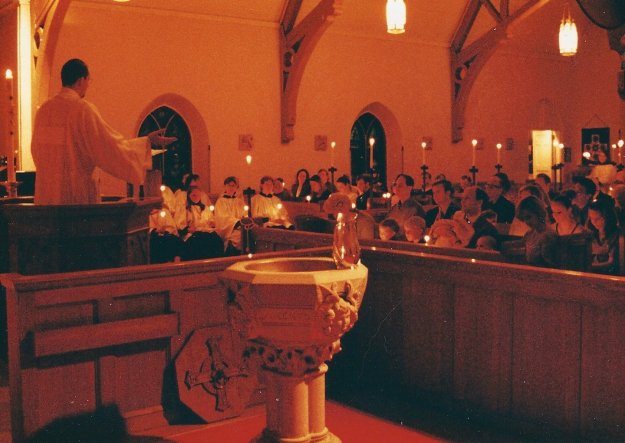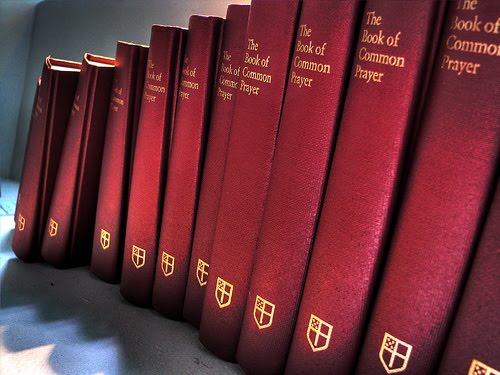Will you be loyal to the doctrine, discipline, and worship of Christ as this Church has received them? And will you, in accordance with the canons of this Church, obey your bishop and other ministers who may have authority over you and your work?
Answer
I am willing and ready to do so; and I solemnly declare that I do believe the Holy Scriptures of the Old and New Testaments to be the Word of God, and to contain all things necessary to salvation; and I do solemnly engage to conform to the doctrine, discipline, and worship of the Episcopal Church. (BCP 526)
Engaging to conform
I have already been living under this vow for 20 years as an ordained deacon in the Episcopal Church, but I have been invited to reflect on it again as I prepare for ordination to the priesthood.
First and foremost, I believe the center of this particular vow – in response to the bishop’s questions about loyalty and obedience – is the promise to engage to conform.
Doctrine, discipline, and worship may be the legal matter of this vow, but conforming (both willingly and readily) is the spiritual energy of this promise made by bishops, priests, and deacons at their ordination.
Do not be conformed to this world, but be transformed by the renewing of your minds, so that you may discern what is the will of God—what is good and acceptable and perfect. (Romans 12:2)
We live in a culture that does not value conformity, but rather tries to sell us on the endless allure of newness, entrepreneurialism, start-ups, and fashion.
Being transformed away from that culture, away from conformity to that world, means the “renewing of our minds” toward the good, the acceptable, the perfect. Being transformed toward good requires the paradoxical conformity of humility.
Humility means learning the hard lesson that there are people who know more, and know better, than I do. As I have realized often in my professional career and in 20 years as a deacon (and more recently in three years of recovery), I can learn from the experiences of people who know what I need to know only to the extent that I am willing and ready to conform to “the steps we took, which are suggested as a program of recovery,” or to the experience of my colleagues, or to the practice of the Church’s disciplines.

Discipline
I have been taking an online Canon Law course through Bexley Seabury this fall, so I now happen to know that where clergy discipline is concerned:
Discipline of the Church shall be found in the Constitution, the Canons and the Rubrics and the Ordinal of the Book of Common Prayer. (IV.2)
The church’s disciplines are not random, but have organic beginnings in the early Church and have developed over time as society has changed.
In our particular branch of the Church, we have disciplines that include organizing ourselves in General Convention and dioceses and parishes, agreeing how we will worship (down to the fine print), and setting out requirements for ordaining bishops, priests, and deacons.
Engaging to conform to the discipline of the Church means willingly working within the political structures of General Convention, the diocese, and the parish – even if you are working ultimately to change those structures.
It means willingly participating in an ordination process that involves many other people, even if (as my faculty advisor observed a long time ago) it’d be easier just to stand on the street corner and say, “I’m a preacher!”

It means willingly observing the fine print of the prayer book or other services authorized by Convention, whether you agree with the changes or not.
I’ve always worked in large, bureaucratic organizations, so I’m perfectly comfortable with the fact that there are policies and procedures – disciplines – that govern the way we live, and work, and worship together.
Worship
Together or alone, we Episcopalians worship God the Father, through the Holy Spirit, in the Name of Jesus Christ.
In just the same way as the disciplines of the Church have changed over time, so too has the Church’s worship, whether personal devotions or corporate prayer.
From the very basics – fasting and the Lord’s Prayer – to personal prayers several times a day, to gatherings of Christians morning and evening, to splendid Byzantine liturgies and daily Latin Masses, to monastic offices, to worship in the vernacular and the Reformation focus on the reading of Scripture, the Church’s worship has changed and evolved in myriad ways throughout the 20 centuries since Jesus’ time.
Engaging to conform to the Church’s pattern of worship means, for me, praying “by the book” using the daily offices of Morning and Evening Prayer.
Though the public offering of the Daily Office has not been required of clergy in the American Episcopal Church as it was in England, it’s the heartbeat of the English prayer book tradition and an unparalleled practice for hearing and responding to the Holy Scriptures. Other forms of personal prayer, like meditation and Centering Prayer, supplement the offices and give me a chance to be silent and receptive, communing with God in that way.
Secondly, even though for a long time Sunday worship in the English and American Church featured Morning Prayer and only occasional Communion, the pattern since 1979 (and in many places even before I was born) has been to celebrate the Holy Eucharist every Sunday and on other Major Feasts. The prayer book rubrics are clear on the subject.
I read an article this week in The Living Church by Andrew Pearson, a cathedral dean who says “we are a Morning Prayer parish in the first place, already differentiating ourselves from nearly every other Episcopal church in the United States.”
Engaging to conform, to my mind, means setting aside that kind of idiosyncratic preference in favor of practicing and promoting the Church’s current pattern of corporate worship.
It’s often said (by Episcopalians, at least) that “praying shapes believing.” Practicing the Episcopal Church’s discipline and following the pattern of the Episcopal Church’s worship reveals the Episcopal Church’s doctrine.
Doctrine
According to the canons of the Episcopal Church:
Doctrine shall mean the basic and essential teachings of the Church and is to be found in the Canon of Holy Scripture as understood in the Apostles and Nicene Creeds and in the sacramental rites, the Ordinal and Catechism of the Book of Common Prayer. (IV.2)
In the parishes and dioceses of the Episcopal Church we baptize new members of Christ’s body, making and renewing promises before God as we recite the Apostle’s Creed.
We pray morning and evening, reading from the Holy Scriptures and reciting that same baptismal creed. We celebrate the Holy Eucharist every Sunday, reading from the Holy Scriptures and reciting the Nicene Creed in affirmation of the faith we hold.
We confirm lay persons and marry people and ordain ministers in the context of the Holy Eucharist. In other sacramental rites, we reconcile the penitent, pronouncing on them God’s absolution; we minister to the sick, laying hands on them and anointing them with oil for healing; we bury the dead, commending them to God in the sure and certain hope of the Resurrection.

Our doctrine is our common prayer, and it is to be found in its disciplines.
My teaching over the years – in the catechumenate, in abuse prevention training, in Deacons’ School, in Episcopal 101, at retreats, on this blog, in Education for Ministry – has been, and will always be, rooted in the Book of Common Prayer and the Holy Scriptures, as the Episcopal Church uses them.
I stand willing and ready once more to engage to conform.









